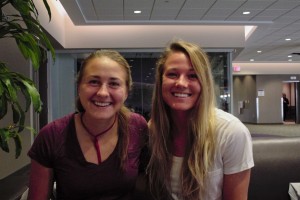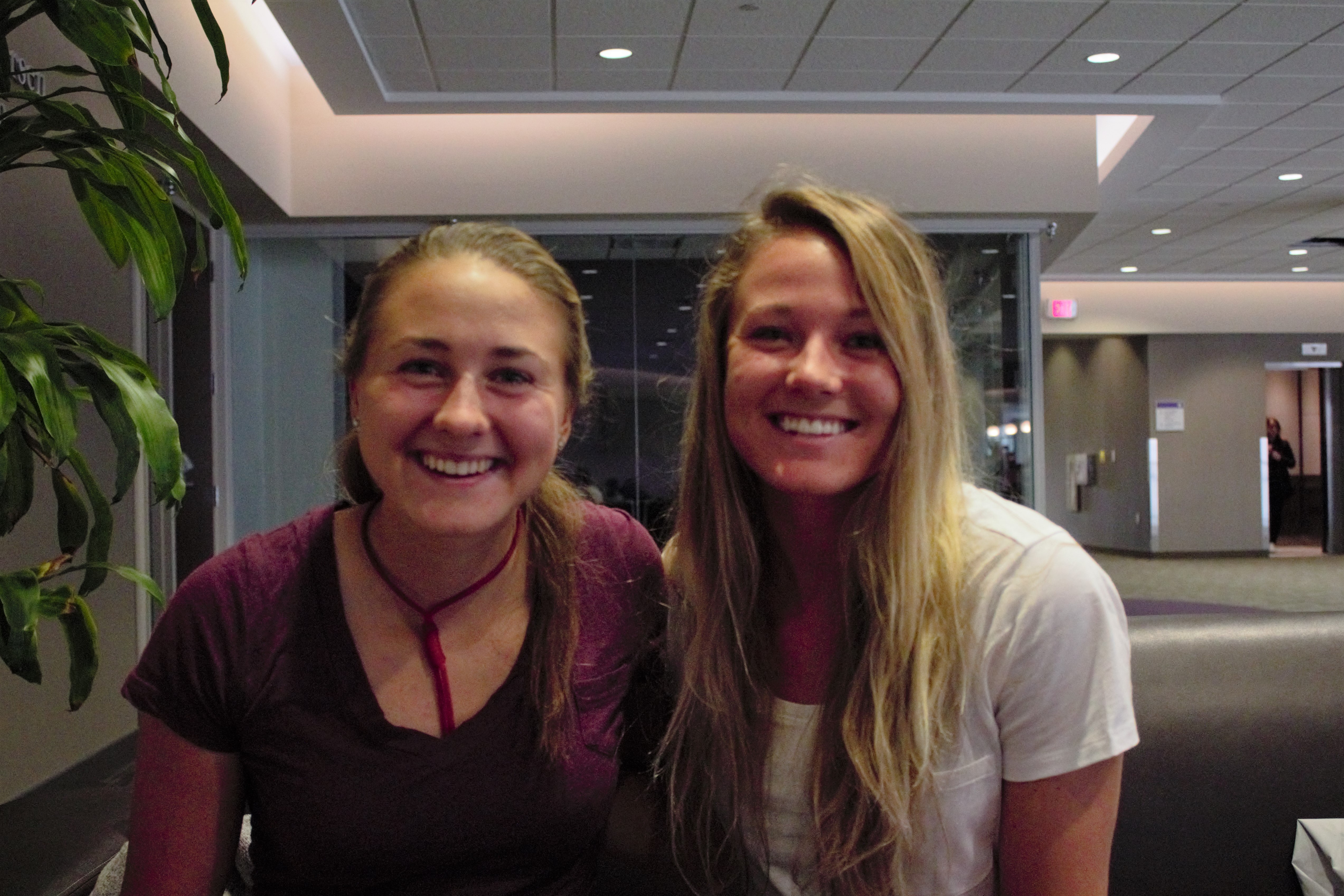What could be better than owning your own full-sized home as a college student? Well, think small. Tiny, in fact.
Seniors Ellie Henkemeyer and Kaycie Anderson have been forming a business that would allow students to build their own tiny houses and live in community of them on campus.
According to The Tiny Life website, a tiny house is defined as a home with an area of 100 to 400 square feet, while the average American home clocks in at about 2,600 square feet.
Henkemeyer first learned about the tiny lifestyle last year, and she’s been fascinated with it ever since.
“I thought the idea was really cool because it kind of inspires people to minimize their possessions and it seems to recalibrate people on their priorities in life… instead of hiding behind all these things that you buy to make you look good and successful,” she said.
Henkemeyer and Anderson hope their passion for tiny houses turns into a profitable business, and one they hope to bring to St. Thomas in the future. They even plan to call their business “TinyU,” as in “tiny university”.
“If you were to have a tiny house community on campus, then it’s like instantly connecting those students the very first day they move in here,” Henkemeyer said. “And the really cool thing we were thinking is you could do periodic meetings where… you’re learning about tiny living and how to downsize and also how to decrease your carbon footprint and be sustainable.”

Henkemeyer said that the students’ rent would build up so they could eventually buy their tiny homes if they choose.
“It’s kind of rewarding students for living minimally. They get to see those tangible benefits because it would be significantly cheaper than any other on-campus housing option,” she said.
Currently, on-campus housing at St. Thomas ranges from around $600 to $1,000 per month, and Henkemeyer said a student would be lucky to find housing off-campus for as low as $400. That’s why the two decided on $475 per month as a starting price for St. Thomas students to live in a tiny house.
“It’s a competitive price for either on or off campus,” Anderson said.
Together, Henkemeyer and Anderson created an online survey to gauge where St. Thomas students stood when it came to living tiny, and within five days, over 140 students responded.
“We tried to design the survey so you couldn’t just hit neutral on everything, you know. For the most part, people were actually really excited about it,” Henkemeyer said.
However, due to the lack of open space on campus, St. Thomas isn’t the most ideal location to start their business. With hundreds more acres of land to spare, Henkemeyer said Auburn University in Alabama or the University of Colorado-Boulder would work much better with what they have in mind.
In addition to creating potential floor plans, a tiny house model and brainstorming how to work around the legalities of zoning laws, their first real test is coming up in the form of the Fowler Business Concept Challenge. It’s a competition hosted by the Schulze School of Entrepreneurship that awards up to $10,000 in scholarships to the top four finishers at both the undergraduate and graduate levels.
Despite the challenges, however, both seniors are excited and passionate about sharing the gospel of tiny living.
“Being a student, you feel like you’re a slave to your debt. Finally being free from that is the biggest weight you can take off of anyone’s shoulders,” Henkemeyer said. “That’s why I would be super into starting a business like this because you’re allowing people to do that from square one.”
Danielle Wong can be reached at wong0031@stthomas.edu.

